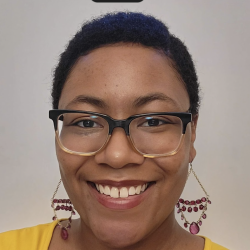
Tragedy: Trying to make sense of the senseless (Grief Therapy in Philadelphia 267-324-9564)
When violent tragedies and trauma occur, our sense of safety is completely shaken. When targeted violence occurs, our belief in the good of others is questioned, and the desire to answer the question “why” is more important than ever. Today in our country tragedy and trauma is more present in our lives and in the media, often leaving Americans with high anxiety, fear, and unanswered questions. Trying to make sense of senseless acts like the Boston Marathon bombing, and Sandy Hook Elementary is a difficult task. The second these tragedies occur the media searches for the “why,” and we as concerned, scared individuals stay tuned. I look at this as our first attempt in trying to put the pieces of this tragic puzzle together for ourselves. However, no matter how much the media learns about the reason behind the attack, or the mental state of the attacker, we are still left with no real answers. So, without our questions answered, what do we do? Where can we turn? Grief Therapy in Philadelphia can help.
What does this tragedy mean to us? What is triggered within us?
Yes, the fact that innocent people have been harmed, even killed is devastating on it’s own. The devastation doesn’t even have to directly impact your friends, family, or work setting in order for you to feel impacted. What is most upsetting to us about this event? What does this tragedy bring up for you personally? Perhaps you fear that similar events could happen to you, and you now question your safety more. Maybe you tend to get engulfed in the constant media coverage of such events, and you don’t know how to focus on anything else. Perhaps you fear bringing children into a world where such senseless acts happen, and you don’t want to even risk your own child’s safety. Perhaps you fear how these events will impact the behavior of others. Many non-white American experience the backlash of patriotism in response to terrorism. Whatever the issue(s) are for you, there is something at the core that triggers you the most when thinking about this, or any other tragedy. The bottom-line is this tragic act was a serious violation of our personal safety and our expectations of how people treat other people. In our world, such tragic, bad things do not happen to good, innocent people, (at least, they are not supposed to). When you can identify how the tragedy is impacting you, you need to open up dialogue and talk about your emotions and reactions with others you trust in a safe environment. These discussions can help you connect with others, organize your own thoughts, and maybe even develop new ideas or a new framework when listening to someone else’s experience of the event. Grief Therapy in Philadelphia can help.
Is fear really such a bad thing?
In many countries, and in many neighborhoods practically in our backyards, there are many who live in fear at a much heavier level, every day. For most fortunate Americans, our fear historically comes and goes. For the most part, compared to other nations, we live in a world with a false sense of safety, and once in a while, this sense of safety is rocked and questioned. However, just because something triggers fear, is that always a sign to back up and turn the other way? Obviously if you are trying to cross the street and you fear that oncoming traffic is going to hit you, this is a legitimate fear that you should adhere to and stay put on the sidewalk. However, if you fear that walking out of your front door could lead to you being hurt in a senseless tragedy, yes this fear is valid, but not valid enough to back down and stay in your house for the rest of your life. This is your opportunity for walk towards your fear, fully aware of your emotions and reactions, while living and experience your life. Just because we have a negative reaction to something, it doesn’t mean we should stop the specific behavior. Being honest with yourself about your emotions and your experience can help you value opportunities even more.
When tragedies like 9/11 and Sandy Hook occurs, it’s common to feel exposed and vulnerable, even if we are experiencing these tragedies from a distance. When we feel vulnerable, this is an opportunity to pull those around you closer, appreciate your loved ones, and practice gratitude. When 9/11 happened babies were still born and life was celebrated; when the Sandy Hook shooting happened, weddings and the profession and expression of love still occurred and were witnessed an celebrated by loved ones. Regardless of the tragedies and trauma we are experiencing, we have an opportunity to come together and help highlight the good that still exists in the world, whether it’s through expressing our love for one another, or volunteering in our community and helping others in need. When I think of the destruction that happened after Hurricane Sandy, I immediately think of the volunteer groups that were formed to help serve the families who lost their homes, and the food drives and fundraisers; when I think of the Boston Marathon Bombing, I then think of the runners who ran immediately to the hospital to give blood, and the Boston residents who were offering to take people in who needed a place to stay. There is still good that happens in the world, and there is still plenty of good that we can be a part of creating to help make the world a better place.
Here at the Center for Growth, located in Center City Philadelphia, Mechanicsville VA, Ocean City NJ and Santa Fe NM, we offer grief therapy. Help is available. Call today to schedule a grief therapy appointment 215 922 LOVE (5683) x 100.


































